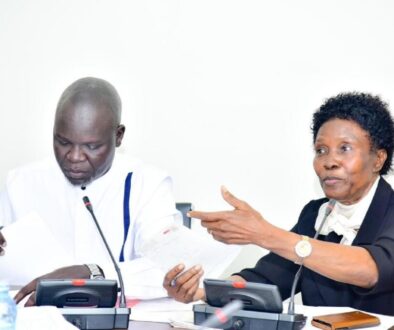UPDF cautioned against Mpox

CAPTION: A patient suffering from Mpox. (File photo).
By Our reporter
NAKASEKE – Uganda Peoples’ Defence Forces (UPDF) personnel have been urged to maintain vigilance and adhere to preventive measures as the Mpox outbreak intensifies.
Col Dr Henry Kyobe, Incident Commander at the Ministry of Health, issued the call during a briefing at the International Peace Support Operations Training Centre (IPSO TC) in Singo, Nakaseke District, underscoring the gravity of the situation.
“Mpox is a serious public health threat that spreads through contact. We need to adhere to precautions,” said Col Dr Kyobe, addressing the troops. He revealed that the outbreak has so far resulted in 1,552 laboratory-confirmed cases and 12 fatalities.
Dr Kyobe outlined the main symptoms of Mpox, which include fever, back pain, swollen lymph nodes, sore throat, and distinctive skin lesions.
Health officials have reiterated their appeal to the public to remain alert, follow established guidelines, and take steps to protect themselves and their communities from the virus.
In a related instance recently the U.S. government has provided $4.1 million, or approximately 15 billion Ugandan shillings, and 5,500 mpox tests to support the mpox response in Uganda.
Through the United States Agency for International Development (USAID), the U.S. government is providing $1.4 million to the World Health Organization (WHO), $600,000 to the United Nations Children’s Fund (UNICEF), and $400,000 to USAID Uganda Health Activity implemented by the University Research Collaborative (URC), to support Uganda’s mpox preparedness and response plan. The U.S. government is also providing $1.7 million to the United Nations High Commissioner for Refugees (UNHCR) to support mpox screening and response in border crossings, refugee settlements, and host communities. Colleagues across U.S. Mission Uganda, including from the U.S. Centers for Disease Control and Prevention (U.S. CDC) and USAID, are working closely each day with Ugandan ministries and officials to respond and prevent a wider spread of mpox.


